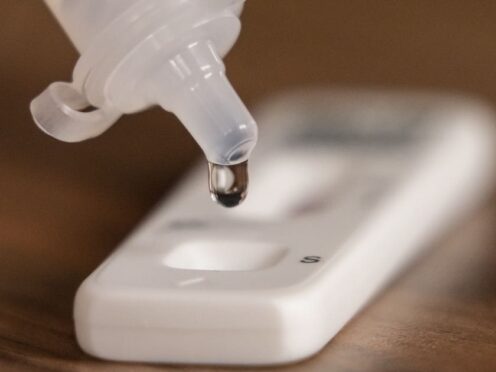
Families missed out on “precious moments” at the end of their loved one’s life in a care home due to restrictions during the pandemic, an inquiry has heard.
Carol Ann Currie told the Scottish Covid-19 Inquiry that some people missed the opportunity to tell a relative they loved them while they were still conscious enough to understand due to rules around end of life contact.
She said that if something like the pandemic were to happen again the importance of end of life contact should be taken into account by those drawing up guidance.
The inquiry heard that the care sector did not feel listened to by authorities during the pandemic, and that not enough consideration was given to the fact that care homes are people’s homes rather than being a clinical setting.
Ms Currie, of Independent Care Homes Scotland, said: “The one that struck me the most was at the end of life, families not being allowed to come in and see their loved ones at the end of life.
“They were allowed in at the very very end but they missed out on precious moments, they missed out on telling a loved one that they loved them when they were conscious enough to understand that and to hear their loved one’s voice back saying that.
“For me that was the hardest part, refusing relatives that were banging on the door wanting to come in and see their loved one at the end and refusing them entry, to me that will stay with me forever.”
The inquiry also heard that guidance issued for care homes did not take into account the practicalities of implementing measures such as keeping people apart in such settings, where there may be residents with dementia wandering around doing “purposeful walking” and touching things.
Scott Finnigan, of Central Scotland Care Homes, also gave evidence on Tuesday.
Christopher Stephen, junior counsel to the inquiry, asked whether the Scottish Government ever consulted Central Scotland Care Homes about guidance to which he replied “no”.

Asked whether he thinks they should have been consulted he said: “Yes. I think the guidance is a perfect world scenario but daily life isn’t perfect world.
“There was really no consideration for the practicality of applying this guidance in a care home setting.
“I think the people writing the guidance were obviously using the best of intentions but I think it was written very clinically for an NHS acute setting, I don’t think there was any considerations to the practicalities that actually fundamentally it’s people’s homes, this is where people live, and the understanding of people being able to actually apply that because of cognitive impairments.”
The inquiry also heard of the toll that the pandemic took on care home staff, many of whom worked long hours amid staff shortages to ensure that residents were cared for.
Mary Rodgers, of Independent Care Homes Scotland, said it was a “very heavy burden” for staff who also worried about the risks they might be exposing their own families to when they went home from work, having potentially been exposed to the virus.
The inquiry was established to discover the facts and learn the lessons of the strategic devolved response to the Covid-19 pandemic in Scotland, covering the period January 1, 2020 to December 31, 2022.
It continues before Lord Brailsford in Edinburgh.
A Scottish Government spokesperson said: “Our deepest sympathies go out to all those who lost a loved one during the pandemic.
“The Scottish Government is committed to responding to the Scottish Covid-19 Inquiry, as learning lessons from the pandemic is vital to prepare for the future.
“It would be inappropriate to comment on the detail of evidence being considered by the Scottish inquiry while hearings are ongoing.”

Enjoy the convenience of having The Sunday Post delivered as a digital ePaper straight to your smartphone, tablet or computer.
Subscribe for only £5.49 a month and enjoy all the benefits of the printed paper as a digital replica.
Subscribe